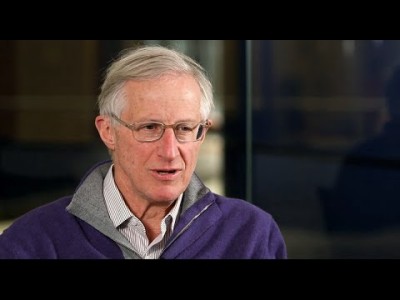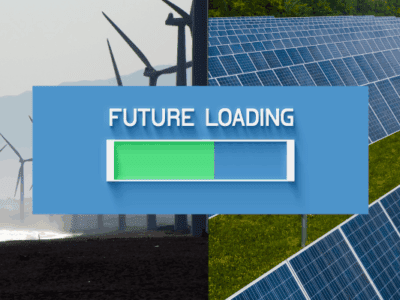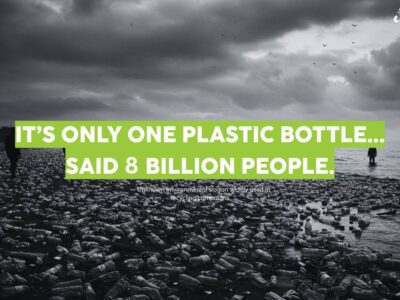Should the WTO Run International Climate Policy?
William Nordhaus’ New Paper Implies That It Should

Last Thursday, Ethan explained the difficulties with attempting to craft a new international climate treaty, and suggested biting off more snackable chunks to work on the problem piece-by-piece (a recommendation I have also made). Now, hot off the presses, the new American Economic Review features a lead article by William Nordhaus suggesting climate clubs as a partial solution:
Notwithstanding great progress in scientific and economic understanding of climate change, it has proven difficult to forge international agreements because of free-riding, as seen in the defunct Kyoto Protocol. This study examines the club as a model for international climate policy. Based on economic theory and empirical modeling, it finds that without sanctions against non-participants there are no stable coalitions other than those with minimal abatement. By contrast, a regime with small trade penalties on non-participants, a Climate Club, can induce a large stable coalition with high levels of abatement.
Nordhaus is a genuine climate policy skeptic, in the sense that he recognizes the problem but is quite good at throwing cold water on proposed solutions (not to mention favoring a very high discount rate). Here, obviously, he seems to push toward regionalization of the problem. I have not read the whole piece, but one key legal problem seems imminent: trade sanctions against non-participants might run afoul of WTO rules.
What if, however, the WTO integrated the trade and climate regimes? That could solve a chunk of the problem pointed out by Nordhaus. If the WTO’s rules included climate provisions, it could put trade sanctions for non-compliance into its rules. That actually could begin to create the kind of international regime hitherto seen as impossible. At the very least, the WTO appellate body should make clear that sanctions for climate policy — such as carbon tariffs — comply with WTO law.
I’m not holding my breath. I put together a panel a few years ago at the American Society of International Law annual meeting about carbon tariffs, and with me as the only exception, all the trade people said that yes, of course climate change is a terrible problem but you can’t have tariffs, and yes someone should do something about it but no its shouldn’t be the WTO. That’s the way it is with climate: apart from the climate deniers, everyone else says that someone else should do something about it.
Still, this is the avenue where climate advocates should push. If you are looking for a genuinely effective international organization that has actual sanctions in it, the WTO remains the strongest example. I argued several years ago that the United States’ chief climate negotiator should not come from the State Department, but rather from the Office of the United States Trade Representative.
In best academic fashion, the article was completely ignored. I think maybe the only person who read it was my Mom, and the very day it appeared, the Obama Administration announced that the State Department would appoint the lead climate negotiator. But in light of Nordhaus’ recommendation of trade sanctions serving an the linchpin of international climate policy, greater WTO involvement in a future climate regime and greater USTR involvement in climate diplomacy, are the ways to move forward.
Reader Comments
4 Replies to “Should the WTO Run International Climate Policy?”
Comments are closed.







Carbon tariff on cement in California ?
If i’m not mistaken, CARB and California cement industry had in 2014 setted up a task force to work on that idea to include in the C&T system some kind of carbon tariff on imported cement. This on the basis that this industry would be the most at risk of loosing competitiveness with the C&T system.
Would you have an idea at what conclusion they arrived ?
Thanking you in advance
Benoit,
from Montréal, Québec.
@GoEcoSynergy
Benoit, I would suggest looking at posts on this site concerning California’s low-carbon fuel standard. That is where it really comes in. In the US system, states cannot put tariffs on other states, and only the federal government has the authority to impose tariffs on foreign sources. California did, however, establish a standard for low-carbon fuel that must be met, and developed a life-cycle analysis to determine the amount of emissions both state-produced and external sources produced. It has been litigated, although at this stage California’s policy has been upheld. Thank you for reading!
New study casts doubt on role of carbon dioxide in global warming:
http://journals.ametsoc.org/doi/abs/10.1175/JCLI-D-14-00656.1
GOOD DAY PROFESSOR , there is any change to get a copy of your writtings i am really interested, PLease cosider to task biodiversity on vulnerable climate change sites,how would you tax pharmaceutical companies and genetic food bioprospectrs? Thanks for you time.